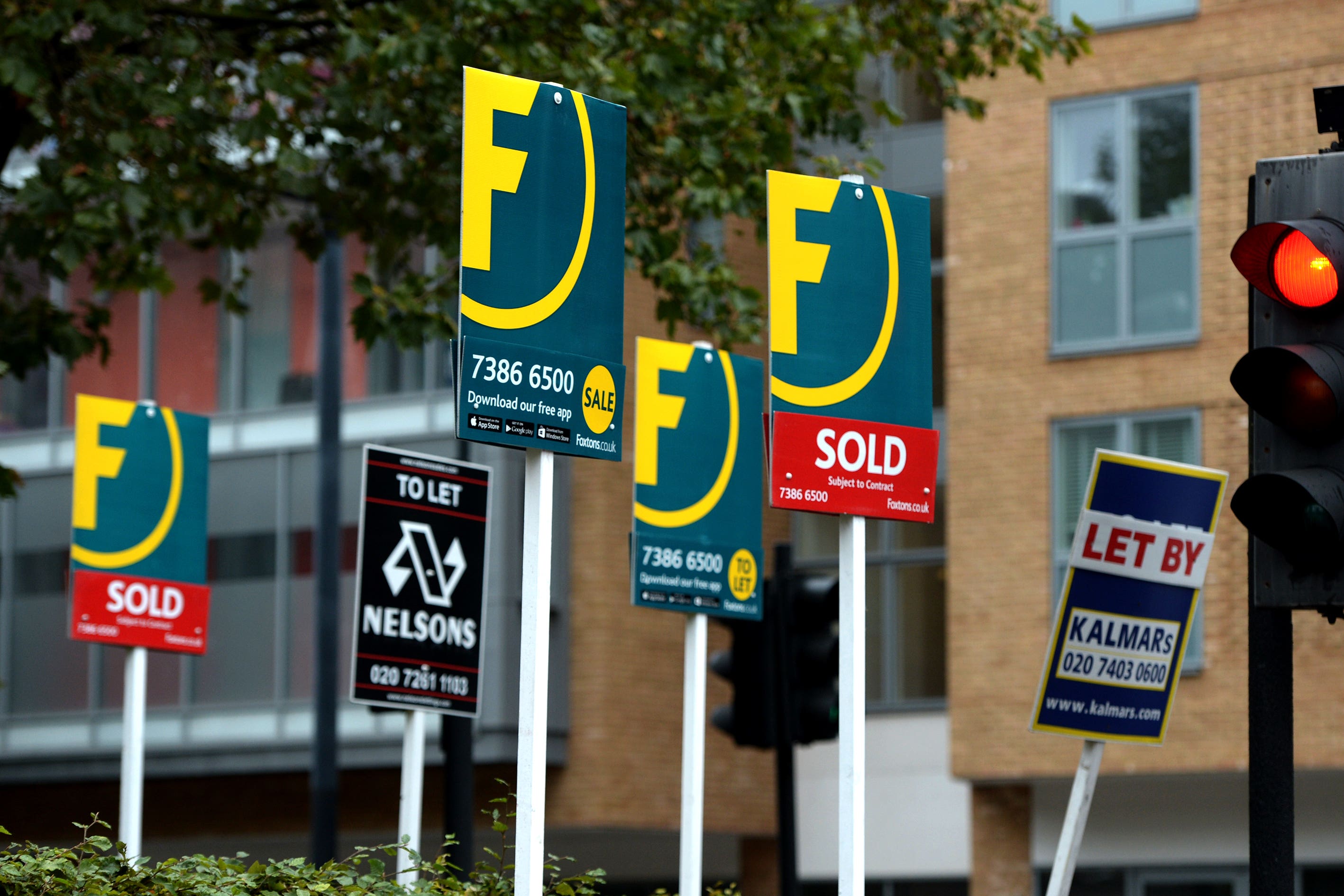House prices fell in March – here’s why homeowners shouldn’t be surprised
Estate agents say activity is picking up but the cost of a mortgage is still very high, writes James Moore. A couple of interest rate cuts won’t do much to help hard-pressed first time buyers


After showing some modest signs of life, Britain’s maddening housing market (for those in it) decided to resume its sulk in March.
The Nationwide Building Society’s latest index showed a modest year-on-year rise of 1.6 per cent but a seasonally adjusted month-on-month fall of 0.2 per cent when compared to February’s prices.
Chief economist Robert Gardner also noted that property is proving hard for sellers to shift. He said that while “activity has picked up from the weak levels prevailing towards the end of 2023” the market is still “relatively subdued by historic standards”.
This really shouldn’t surprise us. On the plus side (for the market), inflation has fallen by a great deal when compared to last year’s horrific price spike. The latest positive news came from the British Retail Consortium, which said that shop price inflation had almost halved, to just 1.3 per cent from 2.5 per cent, the lowest since December 2021.
Wage rises are easing, but the latest update from the Office for National Statistics put the average pay bump at 6.2 per cent excluding bonuses compared to a headline rate of inflation of 3.8 per cent. Moreover, the Bank of England has signalled that interest rate cuts are on the way. Governor Andrew Bailey told the FT that cuts were “in play” at future meetings of his Monetary Policy Committee.
All of this might normally be considered good news for the housing market. So are Nationwide’s March numbers just a temporary blip? Wait just one moment, because what you have to remember is that even after all this, life is still incredibly difficult for first-time buyers. And it is first-time buyers who drive the market.
The latest data from Moneyfacts shows that the average two-year fixed rate home loan is priced at 5.8 per cent while it is 5.38 per cent for five-year deals. Back in June 2021, when inflation was ticking up but before the BoE began its 14 consecutive interest rate rises, the two-year average was just 2.59 per cent while the five-year was 2.82 per cent.
Let’s consider Nationwide’s average house price of £261,142 and a first-time buyer taking out a mortgage for 90 per cent of that amount (£230,028) designed to repay capital as well as the interest. The monthly repayments in June 2021 would have come to £1,042 using Moneyfacts calculator compared to £1,454 today, a yearly increase of £5,448. For the five-year fix, the respective numbers are £1,069 and £1,396.
When you consider that the median UK salary for someone in full-time work comes in at just under £35,000, you have your explanation for the housing market’s torpor.
Now, we should always remember that the price of fixed-rate deals is driven by market expectations for interest rates as opposed to base rates themselves. So, in theory, a reduction in base rates is already priced into Moneyfacts’ numbers. But let’s, for argument’s sake, lop a quarter-point off today’s two and five-year averages. This gives us rates of 5.55 and 5.13 per cent. Repayments on the two-year fix at that level come to £1,419 while it’s £1,362 for the five-year, a monthly saving for our borrower of £35 and £34 respectively.
Any rate cut in the current climate is obviously very welcome. And savings clearly represent good news for prospective borrowers. But household budgets remain under pressure. If affordability is stretched now, it is clearly going to remain stretched after a quarter-point interest rate cut or even two or three of them in relatively short order.
Some estate agents have said that activity is nonetheless picking up, chiefly because the people who had been waiting for the Budget in the hopes that Jeremy Hunt would offer help for first-time buyers (he didn’t) have started to come in.
However, I would be very surprised to see the market suddenly taking off. True, the annual rate of house price increases was greater than the 1.2 per cent recorded in February. But there simply isn’t enough room in most households’ finances to cope with much in the way of higher prices.
Join our commenting forum
Join thought-provoking conversations, follow other Independent readers and see their replies
Comments
Bookmark popover
Removed from bookmarks